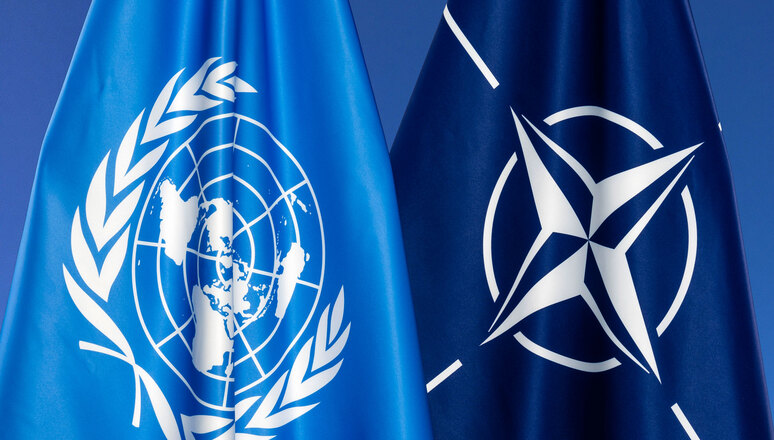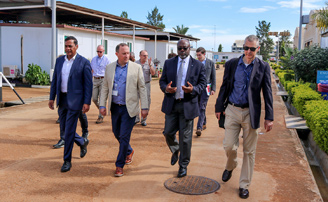NATO strengthens support for United Nations peacekeepers
At their meeting on April 2, NATO Foreign Ministers agreed to enhance practical cooperation with the United Nations (UN) through a package of capacity building support to UN peacekeeping.

NATO will provide specialist support in the development of military performance evaluation processes, medical care, countering improvised explosive devices, and signals and communications.
NATO and the United Nations have agreed to enhance their practical cooperation on capacity building for UN Peacekeeping. The overall goal is to enhance operational performance and the safety and security of UN peacekeepers and the implementation of the United Nations Secretary-General’s “Action for Peacekeeping” initiative, which NATO has supported.
NATO will support UN peacekeeping training delivery by providing experts to join UN teams in delivering training for peacekeeping personnel. NATO expertise in the areas of military performance evaluation processes, medical care, countering improvised explosive devices, and signals and communications will contribute to the development of UN peacekeeping training programmes. UN peacekeeping missions are mandated to operate in increasingly challenging and dangerous environments for which capability in these areas is essential.

NATO support will be provided within the framework of NATO’s Defence and Related Security Capacity Building (DCB) Initiative and will help contribute to the implementation of UN Security Council Resolution 2436 (2018) on enhancing the performance of peacekeeping personnel. The Defence and Capacity Building package will contribute to strengthening UN training capacity at the UN Regional Service Centre in Entebbe, Uganda, which serves as a hub for UN peacekeeping in Africa. Cooperation through this Defence and Capacity Building Package will also provide an opportunity for NATO experts to benefit from the UN’s experiences and lessons learned.
The NATO-United Nations partnership is outlined in a Joint Declaration on UN-NATO Secretariat Cooperation enabling staff to staff cooperation on a range of technical matters, notably countering improvised explosive devices, military medicine, disarmament, the Women, Peace and Security agenda, protection issues, counter-terrorism and reform of defence structures and institutions.
